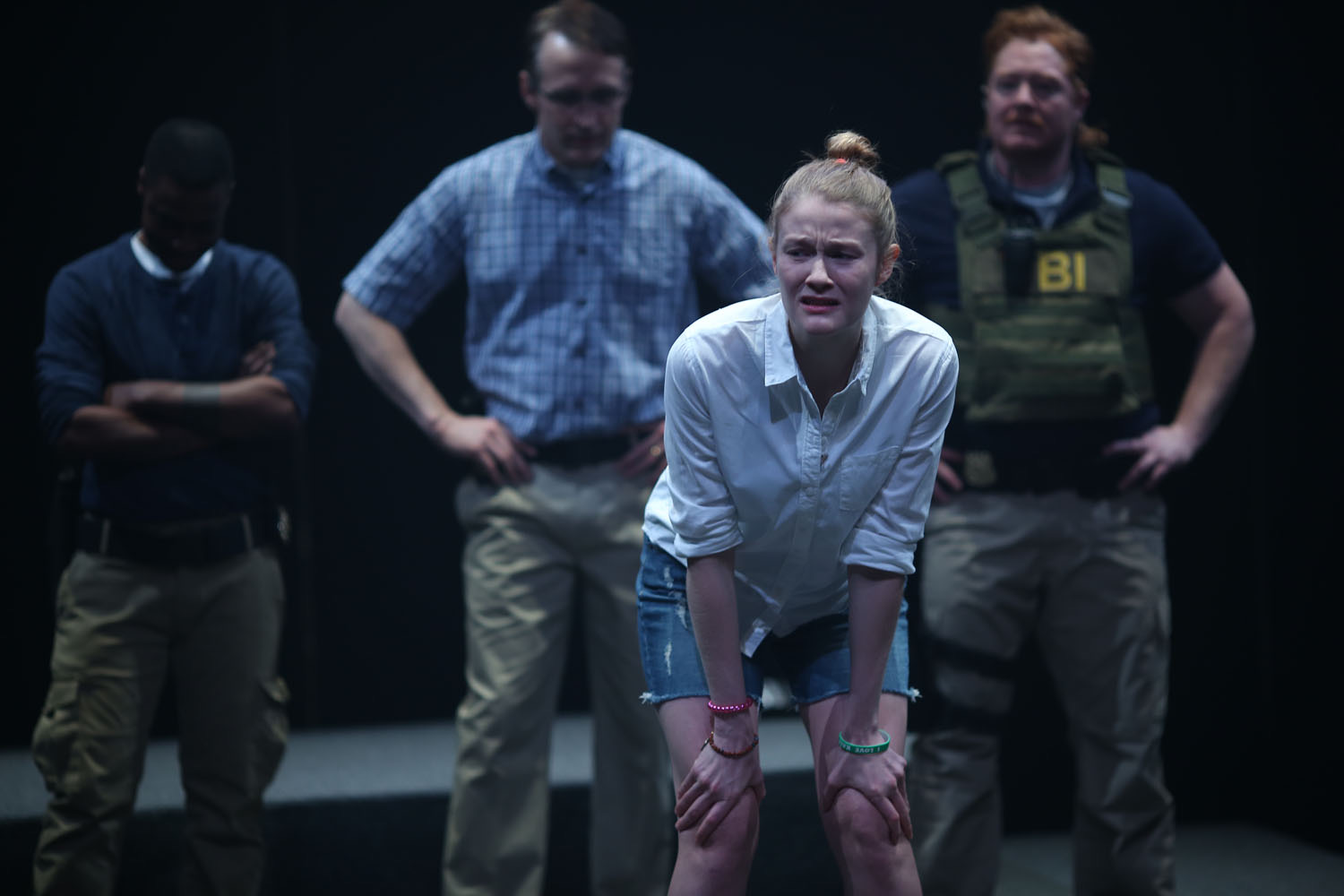On a changing stage: Tina Satter ’96 named a 2020 Guggenheim Fellow
April 24, 2020
 Courtesy of Tina Satter
Courtesy of Tina SatterTina Satter ’96 got the news that she had received a Guggenheim Fellowship in Drama and Performance Art just as the entire landscape of her life’s work began shifting, maybe for good.
“The big question, and the constant micro-question of every day [is]: ‘How does theater exist on the other side of [the COVID-19 pandemic]?’ That I don’t even know how to answer, but you go back to the work,” Satter said in a phone call with the Orient.
According to the John Simon Guggenheim Memorial Foundation website, fellowships are presented to “individuals who have already demonstrated exceptional capacity for productive scholarship or exceptional creative ability in the arts.” The fellowship is competitive; out of 3,000 applications reviewed each year, only 175 are awarded fellowships.
As a playwright and the artistic director of Brooklyn-based theater company Half-Straddle, Satter’s storytelling is all about bodies on stage and people sitting in theaters. Satter has written and directed 10 plays, drawing inspiration from role models in the New York theater community, such as Holly Hughes, Richard Maxwell and Erin Courtney, several of whom she now joins as a Guggenheim fellow. The validation of joining the ranks of her artistic heroes is incredibly meaningful to Satter.
“I’m so used to sort of putting my head down and working, having kind of a chip on my shoulder, just me and my weird plays,” said Satter. “But now, no. I can say really proudly that I’ve won a Guggenheim.”
As one of this year’s four recipients of the prestigious fellowship, Satter is focused on making innovative work that moves theatrical discourse forward despite the challenges presented by the pandemic.
“The thing I can do inside my apartment is write. You go back to the work, you dream up what things look like,” said Satter. “It isn’t a seamless or easy thing to do, but it is the grounding thing one can do—to think, no matter what, I will write this play.”
The new play she is writing, which will be supported by the grant’s funds, was envisioned before the onset of the coronavirus (COVID-19) and was originally inspired by the painting of artist and friend Heidi Hahn. Satter describes it as “domestic horror,” centered on a house full of women.
“Will it feel the same, post-pandemic?” Satter said. “Now, houses and shelter clearly have taken on a new significance.”
Her Off Broadway debut and most recent play, “Is This a Room,” recently closed at the Vineyard Theatre in New York City. It is a staged transcript of the FBI’s interrogation of Air Force linguist-turned-leaker Reality Winner, raising questions of honor, information and the public good that feel especially urgent today.
Satter’s sharp and deeply probing docudrama is packed with contemporary resonance. When the FBI transcript became available, Satter immediately pivoted from another project to stage it, compelled by the question: “What is an American supposed to do, if you see information that you feel the public has a right to know about?”
 Courtesy of Tina Satter
Courtesy of Tina SatterShe also joins an illustrious class of Bowdoin alumni and faculty members who have been Guggenheim recipients. Their projects have ranged from Professor of Photography Micheal Kolster’s “Take Me to The River” collection in 2013 to Anthony Doerr ’95’s 2010 grant for fiction; Doerr would go on to win the Pulitzer Prize for Fiction in 2015 with his novel “All the Light We Cannot See.”
While at Bowdoin, Satter was enormously impacted by her time on the Field Hockey team under then-coach Mo Minicus. Taking to the field with a team, was, in a way for Satter, like writing a play together.
“In that moment [on the field], it’s about possibility and working together and making something that hasn’t been there before,” said Satter.
Academically, she also credits an intimate seminar on Henry James with former Professor of English Celeste Goodridge for introducing her to discourse, writing and female characters, which have shaped her thinking and storytelling.
For Satter, being named a Guggenheim Fellow provides far more than just reassuring financial stability in an uncertain landscape—it reaffirms her belief in producing work that is creatively meaningful and socially engaged.
“To be recognized as someone who’s part of our social and artistic fabric, who has made something meaningful and important … I don’t take that for granted,” she said.
Comments
Before submitting a comment, please review our comment policy. Some key points from the policy:
- No hate speech, profanity, disrespectful or threatening comments.
- No personal attacks on reporters.
- Comments must be under 200 words.
- You are strongly encouraged to use a real name or identifier ("Class of '92").
- Any comments made with an email address that does not belong to you will get removed.

Congratulations to Tina on her fellowship and theatre nominations this season! It was great to work with her on Is This A Room at Vineyard Theatre as another Bowdoin alum.